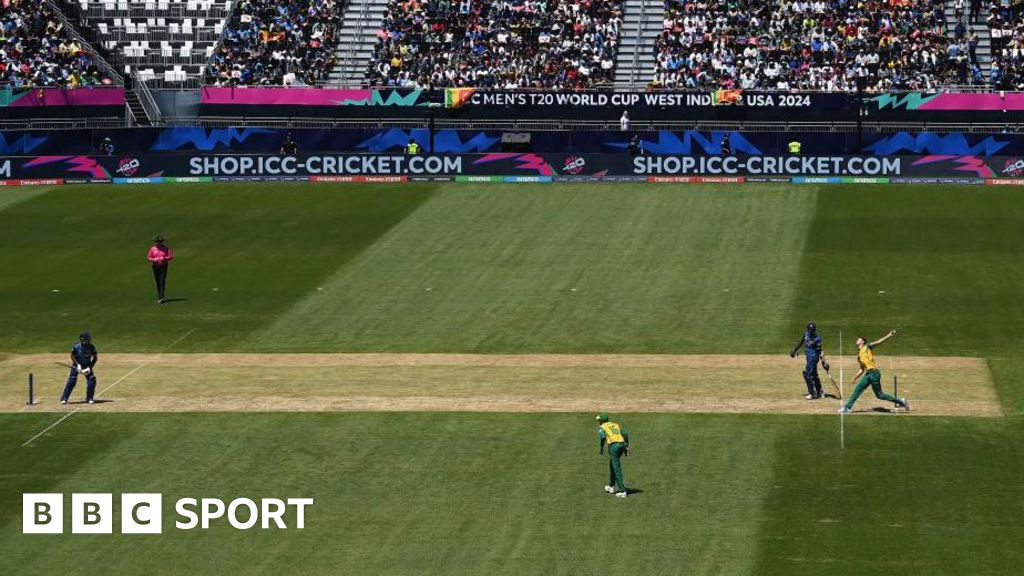World
T20 World Cup: ICC promises to ‘remedy’ New York pitch problems ahead of India v Pakistan

The US is staging 16 of the 55 matches at the T20 World Cup, which it is co-hosting with the West Indies.
The pop-up stadium in New York has cost £24m ($32m) to construct and was built inside eight months to much fanfare from the tournament organisers.
Six of the trays which transported the soil for the 10 Tahoma grass surfaces came from Australia before being shipped to Florida where the pitches were cultivated.
The soil variety has a high clay content, similar to the pitches in Adelaide.
They were then transported to New York by road and installed a few weeks before the tournament began.
The outfield is made up of Kentucky bluegrass, grown at a farm in New Jersey, on top of sand.
There was discontent with the pitch after Monday’s opening match in which South Africa were able to stroll to their victory target against Sri Lanka with 22 deliveries remaining, while India had 46 balls left when they hit the winning runs in another low-scoring match against Ireland.
It has meant the toss in New York has become pivotal in determining the outcome of the match, with the team bowling first at an advantage.
Batters have had to fend off short-pitched bowling, with balls climbing off a length while others skid along at ankle height through to the wicketkeeper.
A clear diagnosis for the problems has not yet been identified.
Similarly, the sizes of the boundaries – 75m and 65m on each side, and 71m straight – and slow outfield have inhibited run scoring with the boundary ropes unable to be pulled in because of ICC tournament guidelines.
As a result the cricket spectacle delivered by both games so far has been largely underwhelming.
India fans were even cheering runs for Ireland at one point during their eight-wicket win, hoping the length of the game would be extended so they could see more of their team batting in the second innings.
Concerns have also been raised about the six pitches laid at the net training facility in nearby Cantiague Park.
Earlier this week, South Africa’s batters opted for throw downs as opposed to facing their own bowlers, and local net bowlers, because of injury worries.









